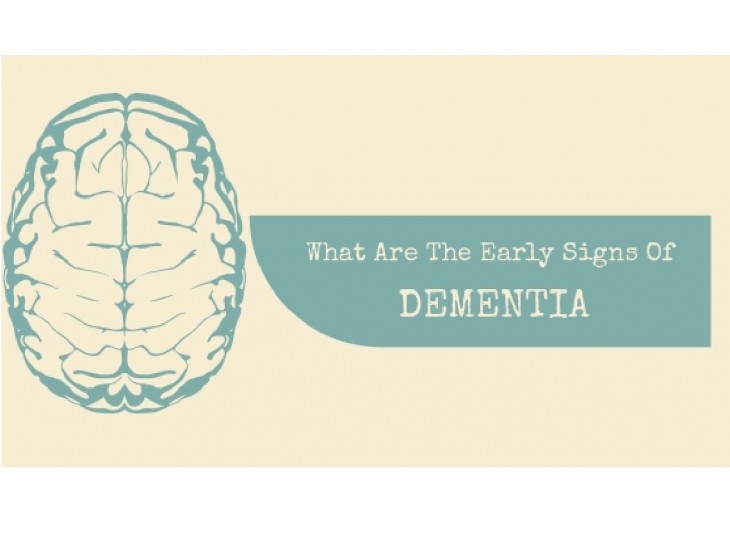
Is your memory not quite what it used to be? This can be an early sign of dementia.
Dementia often refers to the collection of symptoms relating to mental deterioration, confusion and memory loss. Many people suffer from dementia as a result of old age, brain damage, lifestyle factors, or other medical conditions.
Dementia affects behavior, mood, cognitive skills, motor skills and more. However, the early signs can be difficult to spot, as dementia often gets confused with typical signs of aging.
Being familiar with the early signs is the first step in identifying and treating the condition.
Early Stages of Dementia
Living with dementia can be scary for patients and their loved ones. As dementia progresses, it can have a large impact on the lives of those who suffer from it. Some people suffer from dementia for many years before being diagnosed because those around them do not recognize the early signs.
Diagnosing and treating dementia in the early stages can help to prevent difficulty in the future. Educating yourself about the early symptoms of dementia is important so that you can ensure the comfort and safety of your loved ones throughout their later years.
What Are The Symptoms To Look For
Without paying close attention, the early signs of dementia may go unnoticed. Here is what to look for:
- Unusual confusion: Getting lost in familiar areas, use of inappropriate words
- Lack of concentration: Inability to focus of conversations and tasks
- Difficulty performing basic tasks: Difficulty paying bills, cooking and completing other simple activities
- Short-term memory loss: Forgetfulness, repeating stories and questions in the same conversation
- Abnormal mood swings or behaviors: Sudden outbursts of anger; suddenly fearful or suspicious
- Signs of depression: Increased disinterest, withdrawn behavior or hopelessness
If you or your loved one is experiencing any of these signs, it’s best to consult a doctor in order to receive an official diagnosis and treatment plan. See our article here on 'Is Dementia Hereditary?'
Diagnosing Dementia
Whether your loved one begins to repeat him or herself, or seems to struggle with day-to-day responsibilities, it is important to take action when you recognize the early signs of dementia.
The first step is scheduling an appointment with a doctor. While you can see a primary care doctor, a specialist, such as a neurologist or geriatric doctor, may be better equipped to diagnose dementia in the early stages. The physician will be able to diagnose and suggest a treatment plan tailored to the patient. Preventative treatment methods may be used to delay the progression of the symptoms.
The Process
Since the symptoms alone are not enough to determine whether or not a patient has dementia, other tests and information will be taken into consideration. First, the physician will often ask for the patient’s medical history. Then, physical evaluations, lab tests, brain imaging, cognitive testing and psychiatric evaluation will be performed.
The doctor will be able to examine the results of the tests and other information to determine a diagnosis for the patient. Once dementia has been diagnosed, the doctor will suggest treatment options.
Treating Dementia
Dementia is not curable, as damage done to brain cells is irreversible. However, there are many routes that doctors can take when it comes to treating dementia. While it is best to identify and treat the root of the problem, it is possible to treat individual symptoms as well.
Medication
There are four drugs that are commonly used to treat dementia, even in the earliest stages.
The names of these drugs are donepezil, galantamine, rivastigmine, and tacrine.
These four drugs are called cholinesterase inhibitors, which means their duty is to prevent further breakdown of neurotransmitters, which are the little “messengers” that send the body instructions for every bodily function.
Cognitive Therapies
Once dementia has progressed, the focus of the treatment plan will shift. Rather than simply preventing further damage, therapy will be used to help the patient maintain the best possible quality of life. These therapies are typically geared towards strengthening cognitive skills.
Dementia Memory Activities
We have put a guide together on activities for dementia so you can keep the brain exercised with memory and mental games with some physical exercise activities as well.
Conditions with Similar Symptoms
Detecting dementia in the early stages could be confusing, since the symptoms can be quite vague. If you or a loved one is showing the early signs of dementia, do not jump to conclusions before consulting your doctor.
There are several conditions that have very similar symptoms to dementia, such as:
- Strokes
- Infections
- Alcoholism
- Hormonal imbalances
- Depression
- Brain tumors
- Nutrient deficiencies
If you notice any of these conditions, they should be brought to the attention of a physician. These conditions are all serious and should be treated accordingly.
Conclusion
Dementia can be quite difficult to live with, so early detection is key in preventing greater hardships down the road. Familiarize yourself with the early signs of dementia so that you are prepared to take the proper steps when you or a loved one are faced with this condition.
At Willowstone Care, we take the utmost care in making living with dementia as comfortable as possible for your loved ones. Contact a homecare specialist today for more information on how we can care for you or a loved one if you are based around the Sheffield and surrounding areas.